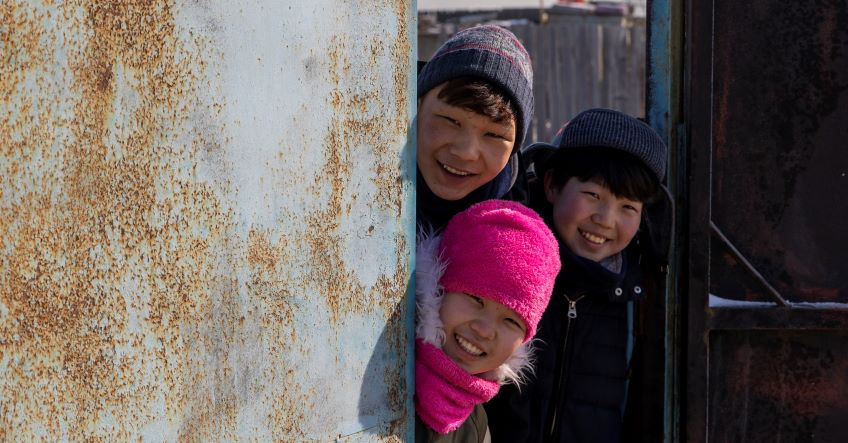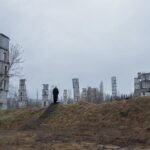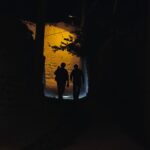Joyce Glasser reviews If Only I Could Hibernate (April 19, 2024) Cert 12A, 98 mins.
Every parent in the UK, every teenager who has ever skipped school, every teacher and anyone who has ever complained about the British winter, should see If Only I Could Hibernate. This unembellished, one-dimensional and rather predictable story, told with compassion, perception, absorbing detail and atmospheric locations, is the only Mongolian film to ever appear in the Official Selection (Un Certain Regard, 2023) at the Cannes Film Festival.
Using non-professional actors from the Yurt district of Ulaanbaatar, the coldest and most air-polluted capital city in the world, writer-director Zoljargal Purevdash’s debut feature is more than a coming-of-age story inspired, in part, by her own life. It presents a rare glimpse of the challenges facing a rapidly urbanising country where the nomadic tradition and a burgeoning educated population co-exist and clash.
When high school physics prodigy Ulzii (Battsooj Uurtsaikh) wins a local physics competition, his teacher (Batzorig Sukhbaatar) stirs a dormant ambition, offering to help him prepare for the national championships. The teacher, who may have personal reasons for wanting Ulzii to succeed, offers him free tutoring but demands that he attend school daily and three, three-hour afterschool sessions per week.
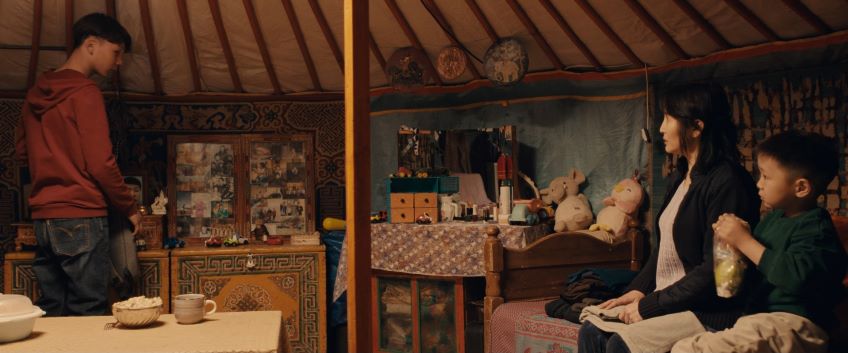
A gold medal, with the prize of a full scholarship to Tokyo University, Harvard or MIT, would enable Ulzii to leave the large tent or Yurt he shares with his recently-widowed mother and three younger siblings in a country with limited prospects. But Ulzii’s illiterate mother (Ganchimeg Sandagdorj) is not inclined to celebrate the good news.
Unable to support her family by scrubbing toilets and unable to find another job due to a combination of alcoholism and illiteracy, she wants to move back to the country.
Ulzii reminds her that their father moved the family to the city two years earlier so that his children would have an education. Ulzii stands his ground and agrees to take care of his siblings if his mother takes the youngest child with her and sends money.
For the remainder of the film we watch Ulzii balance his academic role with those of mother and father, studying by candlelight with thick gloves on, and, after school, walking through the bleak, smoke-covered district in search of food and coal. When Ulzii’s little brother Erkhemee (Tuguldur Batsaikhan) is afflicted with serious flu, coughing heavily from the pollution and the cold, Ulzii has to choose between buying coal and medicine and skimps on the medicine. Tucked up in bed with his siblings for warmth against winter temperatures that reach minus 40C, Erkhemee utters the line that becomes the film’s prosaic title.
Ulzii picks up work where he can and in the process, meets an elderly neighbour’s brother (Davaasamba Sharav) who has just sold his herd and moved to the district to live with his sister. He hires Ulzii for a small job and later, invites the whole family for a hearty meal. ‘My father had a herd of 1,000, and one bad winter took all of them’, Ulzii confides in the generous older man who replies: ‘I had two sons, one bad accident took them both.’
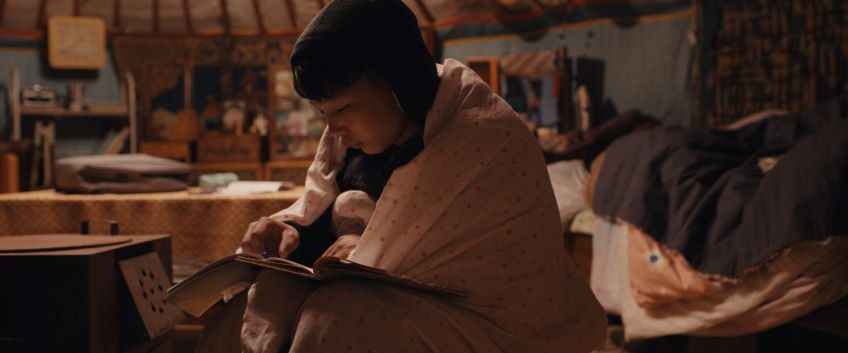
The neighbours offer to help but Ulzii, who declares more than once in the film that he will not be called a beggar, is proud and hides the reality of his arrangement from the old neighbour and from his teacher.
As Ulzii progresses through the regional competitions and becomes eligible for the National he allows himself a night off; dancing, drinking and smoking with friends, but a flirtation at a skating rink with a girl from school has no follow-up. When Ulzii’s mother calls once again to say she cannot send money, he begins to steal wood, and after resisting as long as possible, reluctantly joins some friends for some lucrative but illegal logging, until he begins missing lessons. When his teacher is informed of the logging, Ulzii has to choose between his family obligations in the short term and a once in a lifetime chance to change his future.
Purevdash shows how the migration to the city of a historically nomadic, rural population has created a mixture of tradition with modernity, due to a better educated population and more links to the outside world. A frosty relationship that epitomises this fusion remains between Ulzii’s mother and her sister. Ulzii’s grandfather sold most of his herd so that his aunt, his mother’s sister, could go to university, leaving his mother resentful, bitter and no doubt jealous, but still connected by family bonds.
The aunt now lives in one of the high rise tower blocks in the city centre, in relative comfort, with a modern bathroom, toilet and kitchen. Yet when her baby son develops a mouth sore, Ulzii’s mother sends him on a long bus ride there with his father’s horse bridle to put in the baby’s mouth. The aunt urges Ulzii to take a bath, however, before the next remedy: inserting his toe in the baby’s mouth for it to bite.

